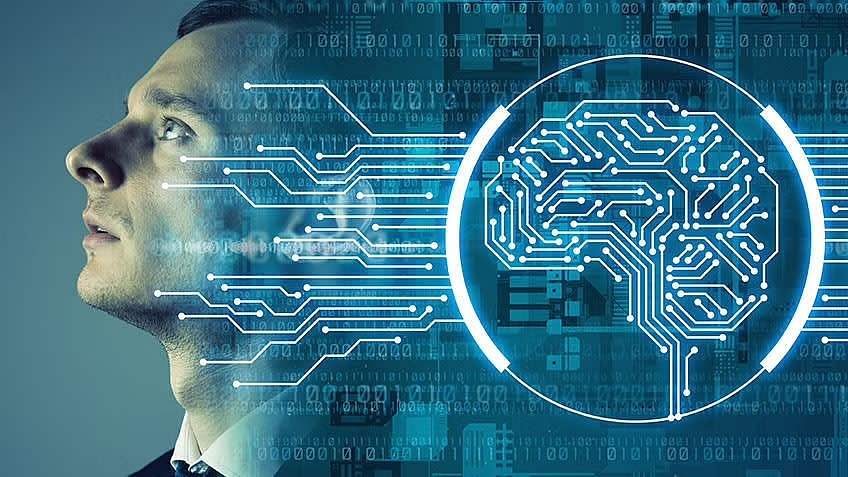From the realm of science fiction into the realm of everyday life, artificial intelligence has made significant strides. Because AI has become so pervasive in today's industries and people's daily lives, a new debate has emerged, pitting the two competing paradigms of AI and human intelligence.
While the goal of artificial intelligence is to build and create intelligent systems that are capable of doing jobs that are analogous to those performed by humans, we can't help but question if AI is adequate on its own. This article covers a wide range of subjects, including the potential impact of AI on the future of work and the economy, how AI differs from human intelligence, and the ethical considerations that must be taken into account.
What Is Artificial Intelligence?
The term artificial intelligence may be used for any computer that has characteristics similar to the human brain, including the ability to think critically, make decisions, and increase productivity. The foundation of AI is human insights that may be determined in such a manner that machines can easily realize the jobs, from the most simple to the most complicated.
Insights that are synthesized are the result of intellectual activity, including study, analysis, logic, and observation. Tasks, including robotics, control mechanisms, computer vision, scheduling, and data mining, fall under the umbrella of artificial intelligence.
What Is Human Intelligence?
The origins of human intelligence and conduct may be traced back to the individual's unique combination of genetics, upbringing, and exposure to various situations and environments. And it hinges entirely on one's freedom to shape his or her environment via the application of newly acquired information.
The information it provides is varied. For example, it may provide information on a person with a similar skill set or background, or it may reveal diplomatic information that a locator or spy was tasked with obtaining. After everything is said and done, it is able to deliver information about interpersonal relationships and the arrangement of interests.
Artificial Intelligence vs. Human Intelligence: A Comparison
The following is a table that compares human intelligence vs artificial intelligence:
Parameters | Human Intelligence | Artificial Intelligence |
Evolution | The cognitive abilities to think, reason, evaluate, and so on are built into human beings by their very nature. | Norbert Wiener, who hypothesized critique mechanisms, is credited with making a significant early contribution to the development of artificial intelligence (AI). |
Essence | The purpose of human intelligence is to combine a range of cognitive activities in order to adapt to new circumstances. | The goal of artificial intelligence (AI) is to create computers that are able to behave like humans and complete jobs that humans would normally do. |
Functionality | People make use of the memory, processing capabilities, and cognitive talents that their brains provide. | The processing of data and commands is essential to the operation of AI-powered devices. |
Pace of operation | When it comes to speed, humans are no match for artificial intelligence or robots. | Computers have the ability to process far more information at a higher pace than individuals do. In the instance that the human mind can answer a mathematical problem in five minutes, artificial intelligence is capable of solving ten problems in one minute. |
Learning ability | The basis of human intellect is acquired via the process of learning through a variety of experiences and situations. | Due to the fact that robots are unable to think in an abstract manner or make conclusions based on the experiences of the past. They are only capable of acquiring knowledge via exposure to material and consistent practice, although they will never create a cognitive process that is unique to humans. |
Choice Making | It is possible for subjective factors that are not only based on numbers to influence the decisions that humans make. | Because it evaluates based on the entirety of the acquired facts, AI is exceptionally objective when it comes to making decisions. |
Perfection | When it comes to human insights, there is almost always the possibility of "human mistake," which refers to the fact that some nuances may be overlooked at some time or another. | The fact that AI's capabilities are built on a collection of guidelines that may be updated allows it to deliver accurate results regularly. |
Adjustments | The human mind is capable of adjusting its perspectives in response to the changing conditions of its surroundings. Because of this, people are able to remember information and excel in a variety of activities. | It takes artificial intelligence a lot more time to adapt to unneeded changes. |
Flexibility | The ability to exercise sound judgment is essential to multitasking, as shown by juggling a variety of jobs at once. | In the same way that a framework may learn tasks one at a time, artificial intelligence is only able to accomplish a fraction of the tasks at the same time. |
Social Networking | Humans are superior to other social animals in terms of their ability to assimilate theoretical facts, their level of self-awareness, and their sensitivity to the emotions of others. This is because people are social creatures. | Artificial intelligence has not yet mastered the ability to pick up on associated social and enthusiastic indicators. |
Operation | It might be described as inventive or creative. | It improves the overall performance of the system. It is impossible for it to be creative or inventive since robots cannot think in the same way that people can. |





.jfif)
0 Comments